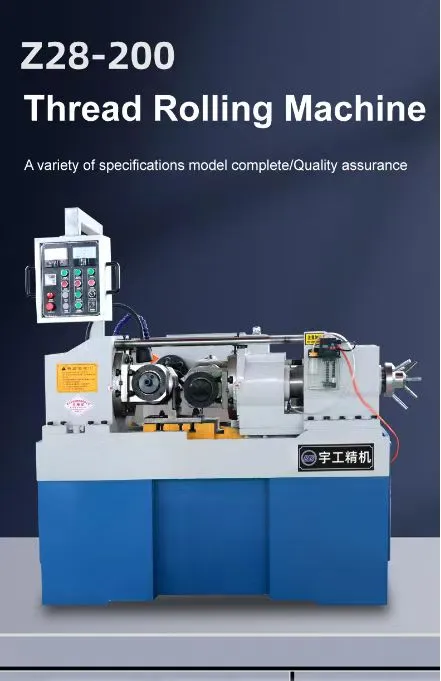
-
 Afrikaans
Afrikaans -
 Albanian
Albanian -
 Amharic
Amharic -
 Arabic
Arabic -
 Armenian
Armenian -
 Azerbaijani
Azerbaijani -
 Basque
Basque -
 Belarusian
Belarusian -
 Bengali
Bengali -
 Bosnian
Bosnian -
 Bulgarian
Bulgarian -
 Catalan
Catalan -
 Cebuano
Cebuano -
 Corsican
Corsican -
 Croatian
Croatian -
 Czech
Czech -
 Danish
Danish -
 Dutch
Dutch -
 English
English -
 Esperanto
Esperanto -
 Estonian
Estonian -
 Finnish
Finnish -
 French
French -
 Frisian
Frisian -
 Galician
Galician -
 Georgian
Georgian -
 German
German -
 Greek
Greek -
 Gujarati
Gujarati -
 Haitian Creole
Haitian Creole -
 hausa
hausa -
 hawaiian
hawaiian -
 Hebrew
Hebrew -
 Hindi
Hindi -
 Miao
Miao -
 Hungarian
Hungarian -
 Icelandic
Icelandic -
 igbo
igbo -
 Indonesian
Indonesian -
 irish
irish -
 Italian
Italian -
 Japanese
Japanese -
 Javanese
Javanese -
 Kannada
Kannada -
 kazakh
kazakh -
 Khmer
Khmer -
 Rwandese
Rwandese -
 Korean
Korean -
 Kurdish
Kurdish -
 Kyrgyz
Kyrgyz -
 Lao
Lao -
 Latin
Latin -
 Latvian
Latvian -
 Lithuanian
Lithuanian -
 Luxembourgish
Luxembourgish -
 Macedonian
Macedonian -
 Malgashi
Malgashi -
 Malay
Malay -
 Malayalam
Malayalam -
 Maltese
Maltese -
 Maori
Maori -
 Marathi
Marathi -
 Mongolian
Mongolian -
 Myanmar
Myanmar -
 Nepali
Nepali -
 Norwegian
Norwegian -
 Norwegian
Norwegian -
 Occitan
Occitan -
 Pashto
Pashto -
 Persian
Persian -
 Polish
Polish -
 Portuguese
Portuguese -
 Punjabi
Punjabi -
 Romanian
Romanian -
 Russian
Russian -
 Samoan
Samoan -
 Scottish Gaelic
Scottish Gaelic -
 Serbian
Serbian -
 Sesotho
Sesotho -
 Shona
Shona -
 Sindhi
Sindhi -
 Sinhala
Sinhala -
 Slovak
Slovak -
 Slovenian
Slovenian -
 Somali
Somali -
 Spanish
Spanish -
 Sundanese
Sundanese -
 Swahili
Swahili -
 Swedish
Swedish -
 Tagalog
Tagalog -
 Tajik
Tajik -
 Tamil
Tamil -
 Tatar
Tatar -
 Telugu
Telugu -
 Thai
Thai -
 Turkish
Turkish -
 Turkmen
Turkmen -
 Ukrainian
Ukrainian -
 Urdu
Urdu -
 Uighur
Uighur -
 Uzbek
Uzbek -
 Vietnamese
Vietnamese -
 Welsh
Welsh -
 Bantu
Bantu -
 Yiddish
Yiddish -
 Yoruba
Yoruba -
 Zulu
Zulu
Top Suppliers of Thread Rolling Machines for Optimal Production Efficiency
The Importance of Thread Rolling Machines and Choosing the Right Suppliers
In the manufacturing industry, precision is key. One crucial process that ensures the accuracy and quality of threaded components is thread rolling. This technique involves forming threads on a workpiece without removing material, resulting in components that are stronger and more durable than those produced through conventional cutting methods. As the demand for high-quality threaded products increases, the role of specialized thread rolling machine suppliers becomes more significant.
Understanding Thread Rolling Machines
Thread rolling machines are designed to create threads on various materials, including metals, plastics, and composite materials. These machines employ a cold-forming process that enhances the mechanical properties of the material. Unlike traditional machining methods, thread rolling does not produce chips; instead, the material is displaced, which results in greater strength and improved surface finish.
There are various types of thread rolling machines available in the market today, including flat die, cylindrical die, and planetary machines. Each type has its unique capabilities and applications, catering to different manufacturing needs. For instance, flat die thread rollers are commonly used for small batch production, while cylindrical die rollers are suited for high-volume production runs.
The Role of Suppliers
Suppliers of thread rolling machines play a vital role in the manufacturing ecosystem. They not only provide the machinery but also offer support services such as installation, training, maintenance, and spare parts. Choosing the right supplier can significantly impact a company's production efficiency, product quality, and overall profitability.
When evaluating potential suppliers, it is essential to consider several factors
1. Reputation and Experience Look for suppliers with a strong track record in the industry. Experienced suppliers are more likely to understand the nuances of different applications and can provide valuable insights into machine selection and operation.
thread rolling machine suppliers

2. Product Range A good supplier should offer a comprehensive range of thread rolling machines that cater to various manufacturing needs. This ensures that businesses can find the right machine for their specific requirements.
3. Quality Assurance The reliability and performance of thread rolling machines are critical. Suppliers should adhere to strict quality control measures and industry standards to ensure that the machines they offer are built to last.
4. Technical Support A reliable supplier should provide robust technical support, including installation assistance, operator training, and ongoing maintenance services. This support is crucial for maximizing machine performance and minimizing downtime.
5. Customization Options Different manufacturers may have unique requirements. Suppliers who offer customization options for their machines can help businesses achieve optimal results tailored to their production processes.
6. After-Sales Services The relationship with a supplier shouldn’t end at the purchase. Look for suppliers who commit to after-sales services, including warranty support, maintenance contracts, and easy access to spare parts.
Conclusion
In conclusion, thread rolling machines are essential for producing high-quality threaded components across various industries, such as automotive, aerospace, and construction. The selection of an appropriate machine is only part of the equation; therefore, partnering with reputable suppliers is equally important. Companies should conduct thorough research and due diligence to find suppliers that align with their needs and can provide quality equipment along with excellent service and support.
As the market for precision-engineered components continues to grow, having reliable thread rolling machine suppliers will be paramount for manufacturers looking to stay competitive. By investing time in building strong partnerships with the right suppliers, businesses can enhance their production capabilities, improve product quality, and ultimately drive success in an ever-evolving manufacturing landscape.
